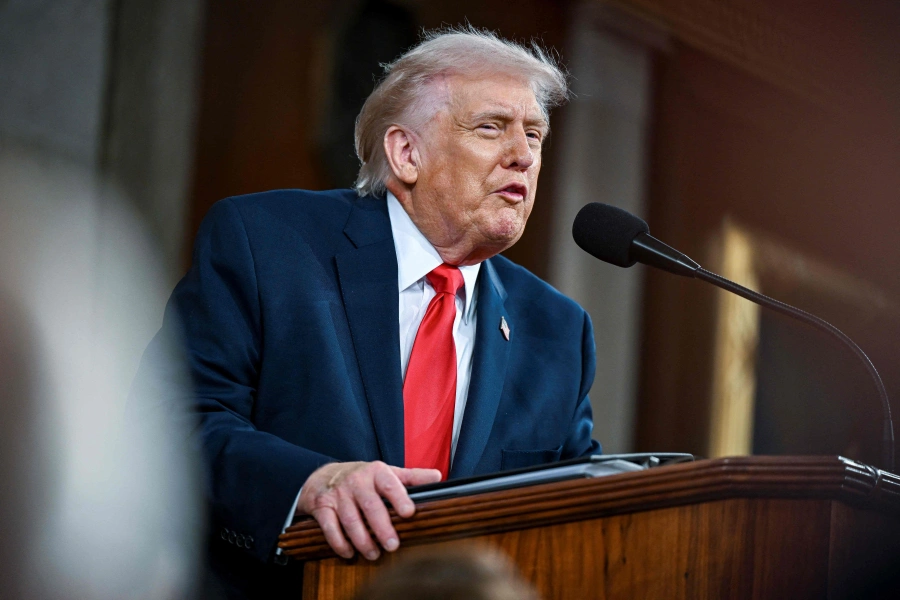If political parties fail to address the common disquiet of people, an unanticipated threat might evolve anytime
You might be wondering: “Why is there so much of clamor against the republican government these days?” The answer to this question cannot be given in few lines.
Concepts of national interests are centered on core values of society, which include welfare of the nation, security of its political belief, national way of life, territorial integrity and its self-preservation, say Norman J Padelford and George A Lincoln in their book The Dynamics of International Politics. In 2006, the reinstated parliamentarians of our country chose to adopt few obsessions without fully evaluating people’s judgment in identifying core national interests. We are feeling the consequences until today.
First, federalism itself and the constitution, which we boast of as one of the best in the entire world, seem to be the source of problems. As we see, the government has formed a team to hold dialogue with disgruntled groups including various popular outfits of eastern and southern part of the country concentrated in Tarai. They are operating actively.
We see that even the prominent leaders who were aggressively engaged in constitution drafting have begun to give conflicting opinions about federalism and constitution.
5 Common myths about common cold and flu (with video)

Besides, chaotic taxation in various parts of the country reminds us of many reformist dictators from the world history who failed in shaping their statecraft. The state’s trade picture and monetary policy support vested interests of big entrepreneurs. They are not commensurate with core national interests. The colossal trade deficit, socio-economic flaws and rampant corruption the country is battling with are not in line with people’s expectations for rule of law and development.
Despair all around
All hopes for change have met with despair. State funds have been badly misused. Asare Bikash (spending big sum of budget for immediate needs without proper planning, supervision and monitoring) has become a norm. The competitive corruption, ill mannerism and gross negligence in public service have further exacerbated public frustrations.
Honestly, you cannot feel positive change with regard to good governance and social wellbeing. Should all this lead to the demand for referendum on the very political fate of the nation, we cannot imagine its outcome. Prime Minister K P Sharma Oli’s recent statement that despaired people will be dangerous has a point in it.
If you visit the government offices, you see how government officials respond to service seekers. The taxpayers have to bend over and salute them to get the things done. Besides, local and provincial administrative overheads have alarmed the public with already increased financial foot prints in every sector of government organizations challenging the state coffers.
Beyond borders
Any national impulse is related to international affairs and we must not be dull not to perceive the link. The international political linkages that Nepal had pursued in the past seem to be limited within only neighborhood at the moment. Although, the value of our neighborhood economic giants can never be understated ,it is equally important for a least developed country like Nepal to explore economic opportunities of technology transfers, innovations, mutual economic endeavors among others.
In the 60s and during the Cold War, Nepal never faced any detrimental political influence on its domestic affairs. With non-alignment policy, Nepal had maintained the best relations with all countries including the major powers and they were ever willing to invest and assist us in our diverse developmental activities. But our increased financial dependency on donors in the recent times has degraded our national prestige in the void of vibrant multinational neutral political engagement.
The recommendation of Eminent Persons Group (EPG) to review the 1950 treaty between Nepal and India is still resting. We can sense that the other party is not ready to accept that recommendation. Back home, Nepal has not been able to break the ice in border disputes with India, including Kalapani.
The SAARC, the existing mechanism for accommodating all nations in South Asian region primarily for economic prosperity, is becoming less significant for some reasons. BIMSTEC summit in Kathmandu vows to “affirm that the fight against terrorism should target not only terrorists, terror organizations and networks, but also identify and hold accountable states and non-state entities that encourage, support or finance terrorism, provide sanctuaries to terrorists and terror groups and falsely extol their virtues.” Time will tell how the smaller nations in this grouping can become resolute in maintaining the above consent or how the cluster in MILEX (military exercise) in Pune will read the instruction. American academician Joseph Nye describes soft power as the ability to influence the behavior or thinking of others through the power of ideas and attraction.
Blame game
Despite these challenges on many fronts, major political parties are in blame game, accusing each other of brewing conspiracy to derail republicanism and federalism. We cannot roll back from these achievements. We need to solemnize them as our strengths.
People’s trust will surely fade if the leaders cannot prove their ability in correcting the fault lines in republican setup. The political strategists, especially the people’s representatives, should act proactively with great wisdom in mending the weak spots mentioned above and explore every positive opportunity to honor people’s verdict. If they fail to address the common disquiet of people, an unanticipated threat might emerge at anytime.
The author, former spokesperson of Nepal Army, is Chief Executive Officer of Nepal Institute for Strategic Studies






































